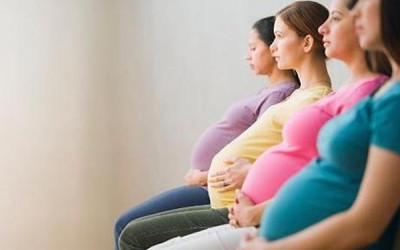Commercial surrogacy should be legalised - Australia

The Chief Justice of the Family Court has called for the immediate legalisation of commercial surrogacy in Australia. In a wide-ranging speech in Brisbane last night, Justice Diana Bryant told journalists that current laws were driving couples to enter into unethical arrangements overseas.
She said two disturbing cases of child abandonment in India and Thailand should force the Federal Government to act. Justice Bryant said Australian women should be able to be paid to be a surrogate mother.
"I personally think we should regulate and allow commercial surrogacy in Australia," she said. "If we allow it in Australia, we then can regulate it and ensure that it's done on ethical terms."
Justice Bryant said a national inquiry was needed. "I think the Government could eliminate some of the worst aspects of international surrogacy by devising some ethical requirements that need to be met before intending parents are permitted to bring a child back into Australia," she said.
In Australia, it is illegal to pay a woman to carry a child for someone else, except in the Northern Territory where there are no laws concerning surrogacy. In the Australian Capital Territory, Queensland and New South Wales, it is also a criminal offence to arrange a contracted surrogacy in another country. But the threat of prosecution had not deterred thousands of Australian couples from going overseas to pay a surrogate mother.
Justice Diana Bryant said when they arrived home with a baby, there were many ethical and legal dilemmas, especially when an egg donor had been used. "That child is never going to know their biological mother, and in those cases, there is absolutely no opportunity for them ever to find out," she said. "The knowing the biological parentage for me would be one of the first steps and I think we have a responsibility as a country to make sure the worse aspects of commercial surrogacy are overcome."
Professor Jenni Millbank from the University of Technology in Sydney, who is an expert in family law, said she supported the legalisation of commercial surrogacy in Australia.
"A number of leading thinkers, policy makers and researchers in Australia are coming to a consensus that we need to liberalise domestic surrogacy," she said.
"We just have a head-in-the-sand approach of saying, 'money's changed hands - it must be bad - we'll ignore it'."
The president of Surrogacy Australia, Robert Reith, agrees.
"It's been far too long that surrogacy has been frowned upon or action not taken by governments to stem the flow of people looking for a surrogacy option in Australia and only to be forced overseas to unregulated markets," he said.
After years of looking, Mr Reith and his wife had just found a surrogate, but under current laws they would be unable to pay her for carrying their child.
"Just the fact that we can't even compensate them for giving us, potentially, the most precious gift of all, is just unreal," he said.





